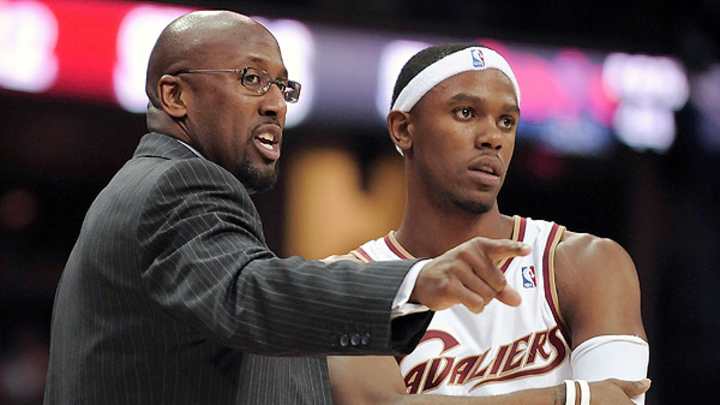Mike Brown the right man to get the Cavaliers back on track

Mike Brown went 272-138 in Cleveland and took the Cavs to the NBA Finals in 2007. (Gregory Shamus/Getty Images)

The late spring of 2010 was an odd time for the Cavaliers, as a strange playoff exit at the hands of the rival Celtics served as a prelude of sorts for LeBron James' much-anticipated free agency. Cleveland's efforts to woo James would begin in earnest a few months later, but in the interim the Cavs could only position themselves as best as possible for that courtship. To that end, Cleveland parted ways with head coach Mike Brown -- who at the time had one year remaining on his contract -- not long after their postseason elimination, and later agreed to hire Byron Scott in his stead.
Neither coach has had all that much luck since (Scott went 64-166 in Cleveland; Brown went 42-29 as coach of the Lakers), but the entire arrangement came full circle this week. Cleveland fired Scott, who also had a year remaining on his contract, on April 18 and will reportedly look to Brown -- who was fired by the Lakers earlier this season -- to replace him.
Much of the initial reaction to this news, as was the case at the time of Brown's Cleveland firing, has centered around James. An early termination option could make James a free agent as soon as 2014, thus linking Brown's signing to Cleveland's interest in its wayward son. James expressed dismay when Brown was fired by the Lakers after a 1-4 start earlier this season ("I just don't think he got a fair shake, honestly"), but CBS Sports' Ken Berger reports that LeBron isn't in a rush to reunite with his former coach. "LeBron isn't a huge fan," an executive tells Berger.
In the season ahead, Brown will be tasked with cultivating a roster that was beyond Scott's reach. What the Cavs players themselves thought of Scott seems to differ from person to person (and report to report), but the more telling assessment of his Cleveland tenure is that the team never once rose out of the bottom-five in defensive efficiency during his three years at the helm. There are some talented young players on the Cavs roster, but few -- if any -- among them have made strides in terms of their ability to operate in conjunction with one another on a cohesive set of defensive principles. No one expected Scott to turn this in-over-its-head group into a stifling defensive front. But some measure of developmental progress is required of a coach placed in charge of a patient rebuild, and Scott ultimately failed to meet that demand. Now Brown -- a defense-first coach to a fault -- will have a shot at that same goal.
Brown was out of his depth in Los Angeles this season, but his scheming and guidance elevated some short-handed Cavs teams into top-10 defensive form. It was under his watch that LeBron James turned the corner from offensive superstar to all-around dynamo, and though he shouldn't be given too much credit for that evolution, one can hope he's capable of nurturing the same defensive focus in Cavs point guard Kyrie Irving. As it stands, Irving is already one of the best young players in the NBA -- an outstanding scorer in any context and a growing playmaker. But he's just a wreck defensively, so raw on that end that he can often undo an unfortunate amount of his sterling offensive work. That could be remedied with the right coach in charge, and Brown, despite his limitations as a leader of top-tier teams, may well fill that prescription.
